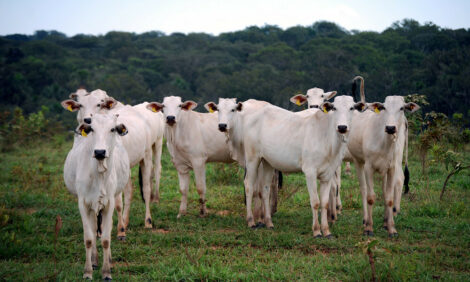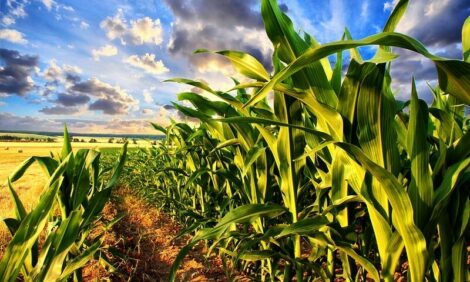



Defra Confirms Bluetongue in Devon
UK - Defra has announced the detection of Bluetongue (BTV8) in eight imported cattle, on premises near Tiverton, Devon. The animals originated from the same consignment imported from within the BTV8 Restricted Zone in Germany.
On 20 August, Defra announced that Northumberland and Cumbria would both enter the Protection Zone at the same time but ‘not before 1 September. This has given livestock keepers and sales organisers a degree of certainty to help them plan movement of their animals to slaughter or to sales in England and Scotland, to mitigate the impact on trade.
Defra can now confirm that the Protection Zone will be extended on Monday 1 September into Northumberland and Cumbria. This will complete the roll-out of the vaccination programme by bringing the whole of England into the Protection Zone, enabling farmers to protect their animals from the threat of Bluetongue.
The cases in Devon were detected as a result of post-import testing carried out by Defra on all Bluetongue susceptible animals arriving from Continental Europe, in addition to checks at the country of origin.
These cases emphasise the need for farmers to be aware of the risks of importing animals from within Restricted Zones and to consider very carefully the potential consequences for their existing livestock and the livestock of their neighbours. This also highlights the importance of vaccination. It is the only effective tool to protect susceptible animals from Bluetongue. Farmers throughout the Protection Zone should vaccinate as soon as vaccine is available to them.
A mass vaccination campaign against Bluetongue began in late April this year, and approximately 21.5 million doses have so far been made available to farmers as far north as Durham and Lancashire to protect their stock.
Protection Zones for BTV8 across the EU are regarded as being “confluent”. This means that it is legally possible to move susceptible animals from the BTV8 Protection Zone in Germany to the Protection Zone in England and Wales and vice versa. It is therefore not unexpected to find infected animals in the Protection Zone.
There is no evidence to suggest that virus is circulating between local midge and animal populations in the local areas. Full epidemiological investigations are underway. In respect of the decision to extend the Protection Zone on 1 September into Northumberland and Cumbria, livestock keepers in the areas coming into the Protection Zone will be able to obtain the vaccine from the time they become part of the Zone; however, they are encouraged to order vaccine in advance through their vet. The vaccine will be available in 20ml, 50ml and 100ml bottles, although some bottle sizes may be more readily available than others as supply proportions vary over time.
Protection Zone restrictions will apply to those keepers coming into the extended zone. Animals can only be moved out of the Protection Zone if they are vaccinated, naturally immune or moving for slaughter, subject to meeting certain conditions. Please refer to the Defra website for further guidance.
All livestock farmers are strongly encouraged to be vigilant and to vaccinate at the earliest possible opportunity.
TheCattleSite News Desk


